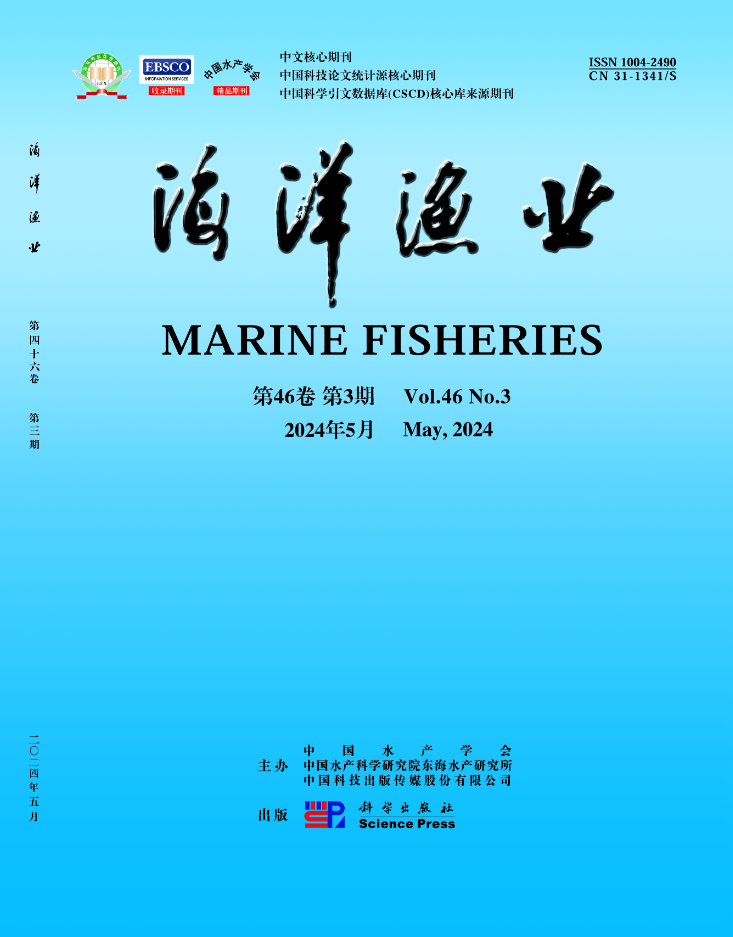PENGEMBANGAN DESAIN PINTU MASUK BUBU LIPAT BERDASARKAN ASPEK TINGKAH LAKU RAJUNGAN
引用次数: 0
Abstract
Blue swimming crab fishing using collapsible traps is widely used by fishermen because its caught live crabs and high selectivity. However, the passive fishing operation causes its low fishing productivity. The success of crabs fishing using folding traps is influenced by the suitability of the entrance design used. The size of the net and the inclination angle that are not by the crab's behavior will cause the crab to fail to be caught. This study aims to determine the more effective entrance design for catching crabs using the collapsible trap. The study was conducted in a laboratory using three mesh sizes, including 1.00, 1.25, and 1.50 inches with 30°, 40°, and 50° inclination angles. Each treatment combination uses different individual crabs. The study was conducted at night in an aquarium equipped with an infrared camera. Differences in mesh size and angle of inclination affect the crab's success rate and crawling speed in crossing the net field. The results showed that the highest percentage of crabs that successfully crossed the net field was obtained using a 1.25-inch mesh with an angle of 40°. The highest average crawling speed was also obtained at the same mesh size and angle of inclination. The use of a 1.25-inch mesh with an angle of 40° is expected to increase the effectiveness of catching crabs with folding traps.基于rajrajkant行为方面的设计方案
可折叠捕蓝蟹因其捕获活蟹和选择性高而被渔民广泛采用。然而,被动的捕捞作业导致其捕捞生产力低下。折叠式捕蟹笼的成功与否与入口设计的适宜性有关。不受螃蟹行为影响的网的大小和倾角会导致螃蟹无法被捕获。本研究旨在确定折叠式捕蟹器更有效的入口设计。该研究在实验室中进行,使用三种尺寸的网孔,包括1.00、1.25和1.50英寸,倾角为30°、40°和50°。每种治疗组合使用不同的个体螃蟹。这项研究是在夜间在一个装有红外摄像机的水族箱中进行的。网眼大小和网眼倾角的不同会影响网蟹穿越网场的成功率和爬行速度。结果表明,使用角度为40°的1.25英寸网片,螃蟹成功越过网场的比例最高。在相同的网目尺寸和倾斜角度下,平均爬行速度最高。使用角度为40°的1.25英寸网料有望提高折叠捕蟹器捕捉螃蟹的效率。
本文章由计算机程序翻译,如有差异,请以英文原文为准。
求助全文
约1分钟内获得全文
求助全文
来源期刊
自引率
0.00%
发文量
4336
期刊介绍:
“Marine Fisheries”started publication in 1979, it mainly covers original research papers and reviews on basic theories and applications of aquaculture and fisheries, including marine biology, mariculture and reproduction, aquatic diseases and prevention, nutrition and feed of aquatic organisms, fishery ecology and environmental protection, development and conservation of marine fishery resources, fishing tools and methods, preservation and comprehensive utilization of aquatic products, fishery machinery and instruments.

 求助内容:
求助内容: 应助结果提醒方式:
应助结果提醒方式:


